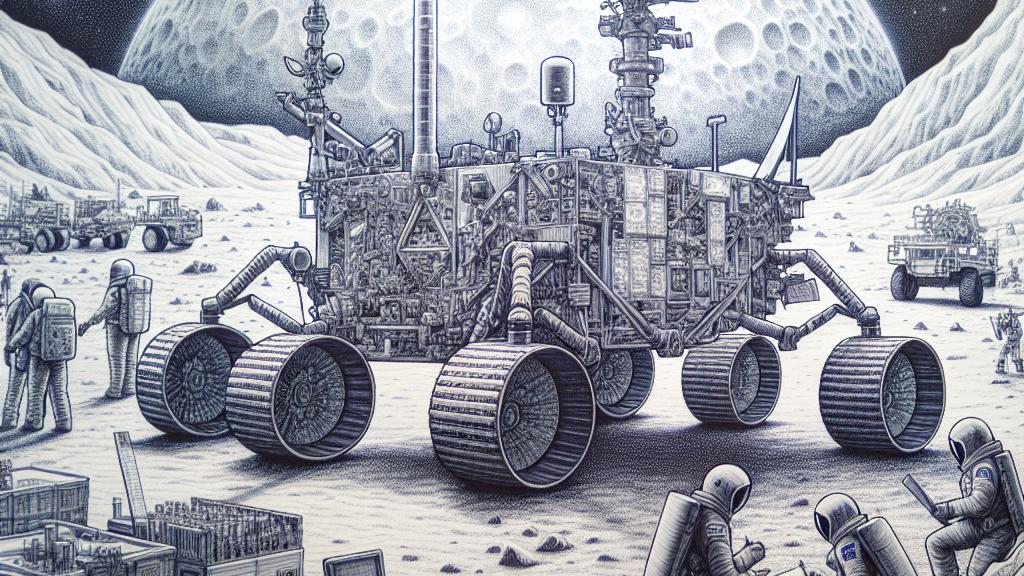Advancements in Lunar Rover Technology by NASA
Overview
- NASA is extensively testing a groundbreaking Lunar Terrain Vehicle prototype to revolutionize lunar exploration.
- This advanced rover will greatly enhance astronauts' capabilities to explore and conduct research on the Moon's surface.
- Collaboration with multiple innovative contractors will lead to the next generation of sophisticated lunar rover technologies.

Introduction to Lunar Rover Testing
At the renowned Johnson Space Center in Houston, Texas, NASA is embarking on a transformative journey with the development of the Lunar Terrain Vehicle (LTV). Engineers are focused on refining an exceptional prototype called the Ground Test Unit (GTU). This innovative unpressurized rover is not simply a vehicle; it serves as a vital platform for simulating various lunar conditions, enabling engineers to gather critical data needed for future missions. Picture astronauts skillfully navigating the rugged lunar landscape, unlocking the secrets of the Moon while collecting invaluable scientific data that could answer questions about our celestial neighbor.
Vendor Collaboration for Rover Development
In an exciting development announced in April 2024, NASA has forged partnerships with three trailblazing companies: Intuitive Machines, Lunar Outpost, and Venturi Astrolab. Each company brings distinct expertise to the table under the Lunar Terrain Vehicle Services contract, ensuring a rich collaboration that underscores the importance of teamwork in this ambitious endeavor. Although the GTU remains Earthbound, its significance is immense as it acts as a springboard for testing and honing lunar rover technologies. For instance, the data collected from the GTU will help refine designs and operational capabilities, enabling these contractors to craft vehicles that excel in the harsh lunar environment. This collaboration not only advances technological innovation but also paves the way for astronaut safety and efficiency on the Moon.
The Future of Lunar Exploration
As we gaze into the future of lunar exploration, the horizon appears more exciting than ever. The advent of human-rated rovers like the GTU promises to expand the scope of lunar missions significantly. Imagine astronauts venturing farther than before, collecting samples and conducting groundbreaking research in areas previously thought unreachable. This vision is a key component of NASA's Artemis program, which signifies a monumental leap in space exploration and aims to send a trailblazing team of astronauts—including the first woman and the first person of color—back to the Moon, marking a historic milestone. Not only will this advance our scientific knowledge, but it will also create a solid foundation for future crewed missions to Mars. NASA's commitment to exploring the cosmos, fueled by cutting-edge technology and collaborative efforts, transforms the dream of interstellar travel into a thrilling reality.

Loading...